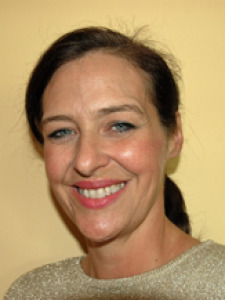The Senate Committee on Environment and Public Works showed strong bipartisan support for the Utilizing Significant Emissions with Innovative Technologies (USE IT) Act in a hearing on Wednesday. Senate Bill 2602 is intended to monetize previously captured carbon. The bill - sponsored by Senators John Barasso, R-Wyo.; Shelley Moore Capito, R-W.Va.; Sheldon Whitehouse, D-R.I.; and Heidi Heitkamp, D-N.D. - appeals to both sides of the aisle.
“It’s a win-win. It’s an energy bill. It’s a carbon emission reduction bill and it will benefit all of us economically,” said Capito.
The USE IT Act complements and builds off of recently-passed legislation that was introduced by the same bipartisan group of senators. The Furthering Carbon Capture, Utilization, Technology, Underground Storage, and Reduced Emissions (FUTURE) Act expanded and extended the Section 45Q tax credit for carbon capture.
“We’re now looking to the second phase and making sure that technology can make it out onto the field. Beyond economics, we need to have adequate R&D into CCUS (Carbon Capture, Utilization and Storage),” Capito said.
USE IT seeks to amend Section 103 of the Clean Air Act, adding language that accommodates carbon dioxide (CO2) activities. But critics say the move could be a threat to the Clean Air Act's integrity.
“I want to make sure that this effort is not linked with other efforts that may weaken the Clean Air Act,” said Sen. Tom Carper, D-Del. “We do not need to scrap our environmental standards to provide a nurturing environment for American innovation and economic investment in carbon sequestration technologies. They are not mutually exclusive.”
The hearing featured testimony from Mark Northam, executive director at the University of Wyoming’s School of Energy Resources; S. Julio Friedmann, CEO of Carbon Wrangler LLC; Noah Deich, executive director at the Center for Carbon Removal; and Feng Jiao, associate professor of chemical and biomolecular engineering and associate director for the Center for Catalytic Science and Technology at the University of Delaware.
Presently, the U.S. is a global leader in CCUS, However, Canada, China and Japan have invested substantial capital in CCUS development. Putting stored carbon to effective and lucrative use is urgent, the witnesses
"In many ways, the U.S. has demonstrated prowess in fielding and managing CCUS infrastructure," Friedmann said. "However, substantial shortcomings to these programs and infrastructure elements limit the market for greater uptake."
The existing CO2 pipelines are largely outdated, the great majority of them being built before 2003. Furthermore, those lines do not reach several key states necessary for transport. Senators discussed a need for expediting the pipeline permitting processes, which in one case took 54 months.
“Obviously, if you’re going to capture and utilize carbon dioxide, it’s helpful to have a way to distribute it to the ultimate users. And that’s where the pipeline piece comes in. It’s a very sensible adjunct to the bill that we got passed,” said Whitehouse.
The senators also talked about putting a price on the sales of stored carbon. The committee is looking to oil and coal stakeholders for input on the material's value. But since implementing carbon capture requires investments on the scale of billions of dollars, monetizing the stored carbon is a critical component of continuing the costly process.
"Carbon capture and sequestration process itself is not profitable without subsidies or carbon tax. As a critical component in CSUS, carbon utilization holds the key to generate revenues that can offset the capture cost and initial investments," Jiao said.
While scientists hope to one day find a way to use the stored carbon as fuel for homes and vehicles, the option is not yet viable. Instead, they recommended using the material in applications such as building materials and chemicals. Many more uses are on the brink of discovery and call for further research. To facilitate those discoveries he USE IT Act directs the Environmental Protection Agency administrator to support CCUS research and development.


